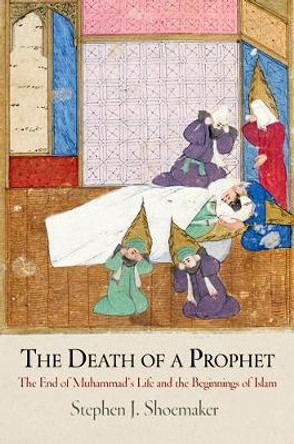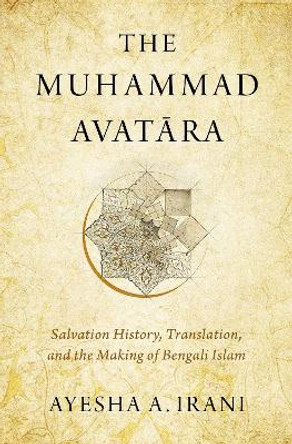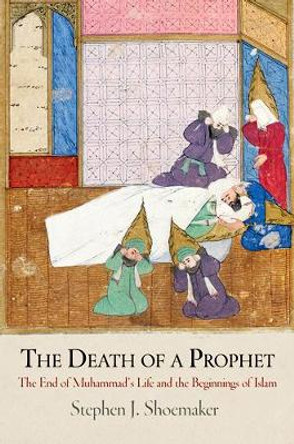Description
In this probing study of death rites, Leor Halevi plays prescriptive texts against material culture, advancing a new way of interpreting the origins of Islam. He shows how religious scholars produced codes of funerary law to create new social patterns in the cities of Arabia, Mesopotamia, and the eastern Mediterranean. They distinguished Islamic from Christian, Jewish and Zoroastrian rites; and they changed the way men and women interacted publicly and privately. Each chapter explores a different layer of human interaction, following the movement of the corpse from the deathbed to the grave. Highlighting economic and political factors, as well as key religious and sexual divisions, Halevi forges a fascinating link between the development of funerary rites and the efforts of an emerging religion to carve its own distinct identity. Muhammad's Grave is a groundbreaking history of the rise of Islam and the roots of contemporary Muslim attitudes toward the body and society.
About the Author
A graduate of Princeton, Yale, and Harvard Universities, Leor Halevi is an associate professor of history at Vanderbilt University. His work has won numerous distinctions, including fellowships from the Library of Congress, the National Endowment for the Humanities, and the American Council of Learned Societies. His publications have appeared in Past & Present, History of Religions, The Journal of the History of Ideas, and Speculum. His first book, Muhammad's Grave, has won three major awards: the Albert Hourani Award, given by the Middle East Studies Association, the Award for Excellence in the category of Analytical-Descriptive studies, given by the American Academy of Religion and the Ralph Waldo Emerson Award, given by the Phi Beta Kappa Society.
Reviews
Muhammad's Grave will be warmly welcomed by scholars and students of premodern Islam, including specialists in both history and religion, and will attract the attention of European medievalists and anthropologists as well. The topic is important, the scholarship solid and original, and the presentation elegant and lucid. -- Everett K. Rowson, New York University The most exhaustive study yet on matters relating to death in early Islam. Leor Halevi meticulously demonstrates how particular beliefs and practices evolved, what sorts of contestation took place in debating these matters, how these beliefs and practices varied from one Islamic city (or community of scholars) to another, what larger questions of identity and authority were at stake, and how to interpret the literary remains that describe the beliefs and practices in question. A major contribution to our understanding of early Islamic history, Islamic religious thought, and the formation of Islam during its first centuries. -- Muhammad Qasim Zaman, professor of Near Eastern studies and religion, Princeton University Leor Halevi persuasively argues that the development of Islamic practices and beliefs relating to death, burial, and the fate of the body was a relatively extended process crucial to the eighth century. He considers a wide range of issues, including matters of sexual propriety and the restriction of the social space available to women, and the way in which a body of rituals served to create an Islamic identity. -- Gerald Hawting, professor of the history of the Near Middle East, School of Oriental and African Studies, University of London "[A] signal contribution... Exceptionally rich in its documentation and evidentiary record, highly imaginative, and creative in its use of oral traditions and legal rulings, Muhammad's Grave is a seminal work. -- Albert Hourani Book Award Committee Innovative... A welcome addition to undergraduate and graduate curricula, and an important source book for scholars. -- Kathryn Kueny Journal of the Economic and Social History of the Orient A welcome contribution... Muhammad's Grave does more than fill the gap. -- Ian Straughn American Anthropologist A truly impressive display of textual scholarship fused with historical anthropology and lit up by enthusiasm. -- Barnaby Rogerson Times Literary Supplement The definitive history of its subject before modern times. Speculum Halevi's book is highly recommended al-Qantara A masterful, well-written work filled with original research. Middle East Quarterly Will be highly valued by anyone who works on early Islam and the process through which a distinctively Islamic community came about. -- Martyn Smith International Journal of Middle East Studies A much-needed corrective to the abstract and textual nature of much of the debate over the nature of early Islam, plunging the reader into a thoroughly imagined and painstakingly documented material world... Erudite and engaging. -- Marion Katz Islamic Law and Society An important contribution to our understanding of the crafting of social ritual in early Islamic society. -- Christine D. Baker Journal of World History A scholarly gem... a spectacular accomplishment. -- Khalid Yahya Blankinship American Historical Review All of this is exciting stuff for students of the early Muslim world, in part because Halevi has suggested and demonstrated several possible ways forward in a notoriously unyielding filed of inquiry. -- Thomas Sizgorich Journal of the American Academy of Religion Original and highly readable... Halevi showcases what historians of Islam can accomplish. Review of Middle East Studies Leor Halevi's Muhammad's Grave is a strikingly original work built on a foundation of meticulous and wide-ranging scholarship. Religion and the Arts [O]riginal and highly readable study Mesa Romes Impressive erudition, which includes a thorough familiarity with scholarship on Judaism and Christianity as well as Islam. History Workshop Journal Matchless imagination in relating the traditions and events of the past. Bulletin of the School of Oriental and African Studies
Awards
Winner of Albert Hourani Book Award 2007 and Award for Excellence in the Study of Religion in Analytical-Descriptive Studies 2008 and John Nicholas Brown Prize 2011 and Ralph Waldo Emerson Award 2008. Short-listed for Best First Book in the History of Religions, American Academy of Religion 2008. Long-listed for Cundill International Prize and Lecture in History at McGill University 2008.
Book Information
ISBN 9780231137423
Author Leor Halevi
Format Hardback
Page Count 416
Imprint Columbia University Press
Publisher Columbia University Press








